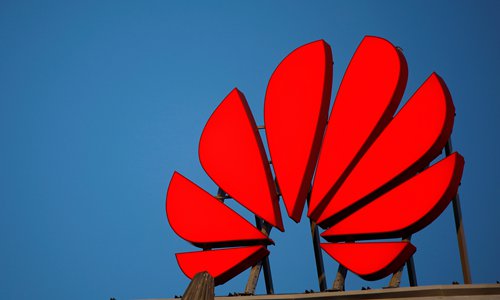HOME >> OPINION
How to grow in China: Tech it from Huawei
Source:Global Times Published: 2019/9/25 18:48:41

Photo: VCG
I visited the headquarters of Chinese tech titan Huawei in Shenzhen, South China's Guangdong Province, Tuesday afternoon with journalists from the US and Germany. During the four hours of interview, the words of former 3Com Corporation CEO Bruce Claflin kept coming to my mind that it would also be an amazing story if Huawei founder Ren Zhengfei's success took place in the US.During the visit, an American journalist asked a question about Huawei's relationship with the Chinese government - a real cliché. In response, current Huawei Technologies Chairman Liang Hua suggested that foreign reporters read the corporation's history after he briefed them on the company's development.
The simple answer made journalists look into the social milieu and policies that led to Huawei's development.
The Chinese tech giant's story began in Shenzhen in the context of the resurgent Asian nation's reform and opening-up. A company like Huawei could only emerge in a market economy which offered favorable conditions.
Ren's success in China is enough to prove that China's social environment and policies can foster companies on a par with world-class ones such as Apple, Microsoft and Google. In addition, China is even able to make better use of market forces than the US.
Foreign media outlets usually interpret Huawei in terms of the policies of the Chinese government. But it would help them trust the company if they chose another viewpoint and tried to understand the Chinese government's policies using the company's growth as a benchmark.
Huawei didn't develop to be a leading company in telecommunications by following government orders or relying on government support. The biggest support the flag-bearer of China's tech prowess gets from the government, in fact, is the environment created by the country's reform and opening-up.
Shenzhen government's management is efficient and in line with the rules of market economy. This is why more and more world-class Chinese companies - such as Tencent and BYD - are taking root in Shenzhen. It resembles Apple, Microsoft and Google's rise in the US.
Huawei's development would not have been the same if it were not in Shenzhen. However, some Chinese companies that have grown up following Huawei are not all based in Shenzhen. After Shenzhen has become a benchmark, many other places have been learning and drawing experiences from its reform and opening-up. For example, Hangzhou, capital of East China's Zhejiang Province, has given birth to Alibaba.
Huawei's success has raised such a question: Since Western countries believe that only market economy can nurture enterprises like Huawei, what prevents them from understanding that China can provide such a legal, normative and social environment? To misunderstand the relationship between Huawei and the Chinese government is to misunderstand China's development. This can even be regarded as political discrimination.
If some countries fear their companies are unable to rival or compete with Huawei, they can indeed find a ruse to restrain Huawei and other Chinese companies alike. But doing so will be like swimming against the tide of market economy and is bound to fail. They will surely hurt Huawei's development but will do more harm to themselves.
Chinese enterprises keep marching toward the world. The Chinese government has no reason to jettison reform and opening-up at such a critical juncture. Chinese central government and local governments may tweak the reform plan in keeping with the ground reality, but the general trend will not change. More Chinese cities are following the example of Shenzhen. More enterprises with remarkable potential like Huawei as well as more foreign enterprises will benefit.
Now that China can create Huawei, it is bound to create more Huaweis. Why not?
The author is a senior editor with People's Daily, and currently a senior fellow with the Chongyang Institute for Financial Studies at Renmin University of China. dinggang@globaltimes.com.cn. Follow him on Twitter @dinggangchina
Posted in: ASIAN REVIEW